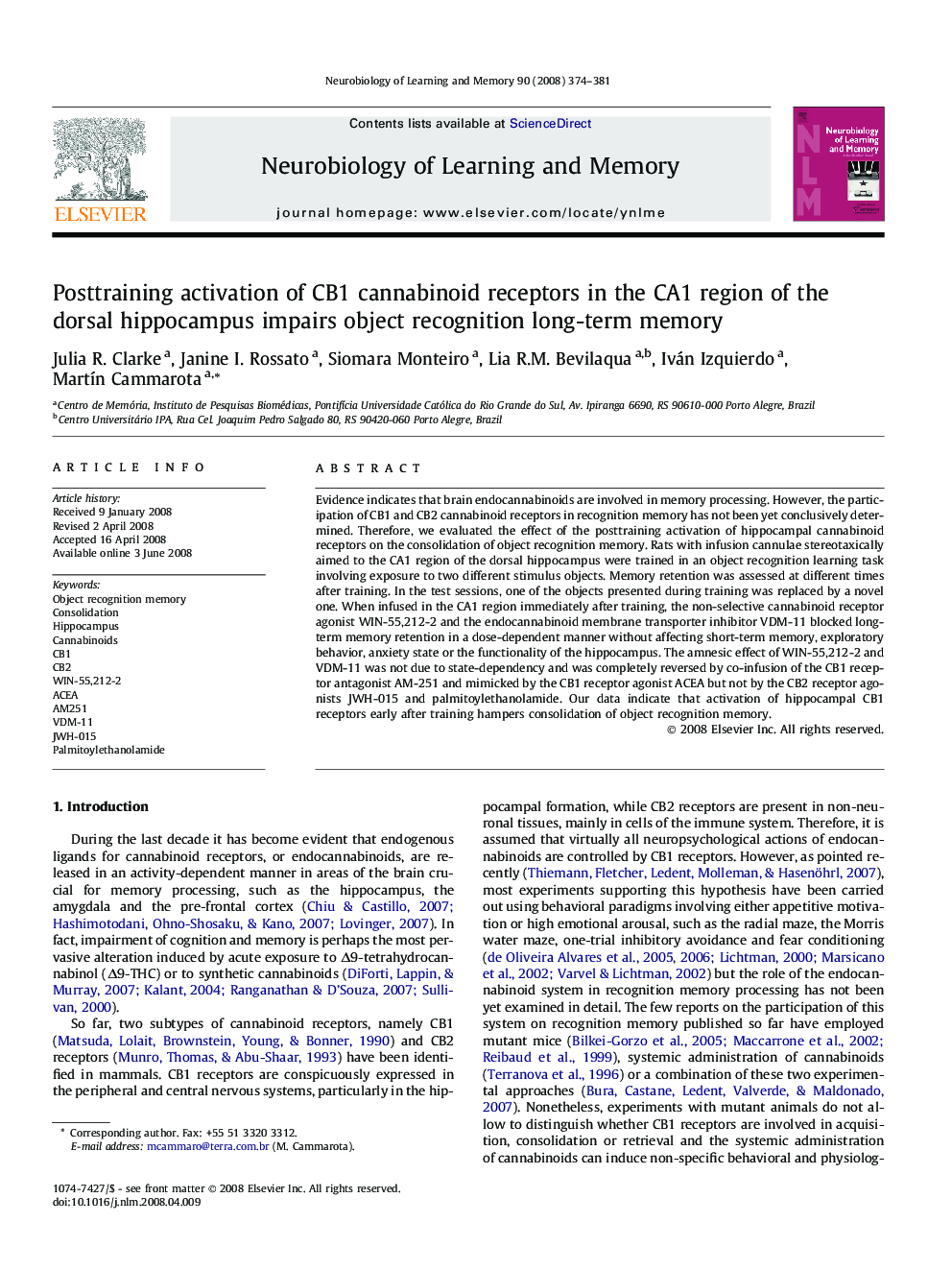| Article ID | Journal | Published Year | Pages | File Type |
|---|---|---|---|---|
| 937103 | Neurobiology of Learning and Memory | 2008 | 8 Pages |
Evidence indicates that brain endocannabinoids are involved in memory processing. However, the participation of CB1 and CB2 cannabinoid receptors in recognition memory has not been yet conclusively determined. Therefore, we evaluated the effect of the posttraining activation of hippocampal cannabinoid receptors on the consolidation of object recognition memory. Rats with infusion cannulae stereotaxically aimed to the CA1 region of the dorsal hippocampus were trained in an object recognition learning task involving exposure to two different stimulus objects. Memory retention was assessed at different times after training. In the test sessions, one of the objects presented during training was replaced by a novel one. When infused in the CA1 region immediately after training, the non-selective cannabinoid receptor agonist WIN-55,212-2 and the endocannabinoid membrane transporter inhibitor VDM-11 blocked long-term memory retention in a dose-dependent manner without affecting short-term memory, exploratory behavior, anxiety state or the functionality of the hippocampus. The amnesic effect of WIN-55,212-2 and VDM-11 was not due to state-dependency and was completely reversed by co-infusion of the CB1 receptor antagonist AM-251 and mimicked by the CB1 receptor agonist ACEA but not by the CB2 receptor agonists JWH-015 and palmitoylethanolamide. Our data indicate that activation of hippocampal CB1 receptors early after training hampers consolidation of object recognition memory.
